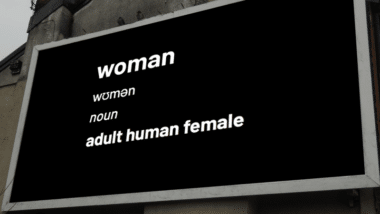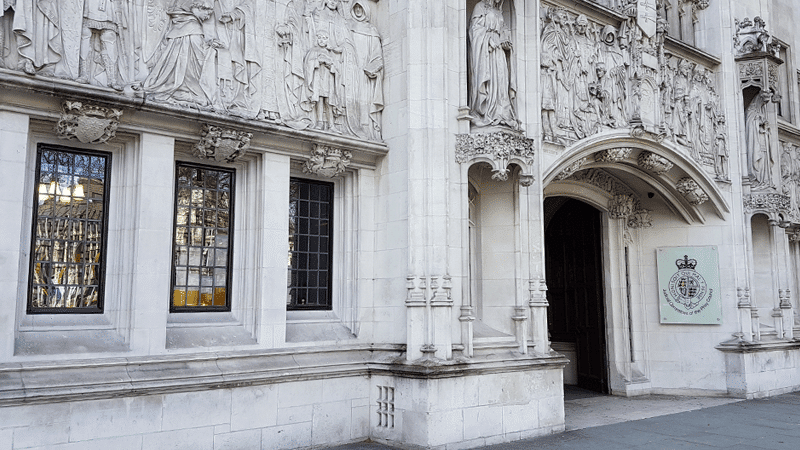The terms ‘woman’, ‘man’ and ‘sex’ in the Equality Act 2010 (EA 2010) refer to biological sex, the Supreme Court has judged.
In a unanimous decision, the UK’s highest court ruled in favour of For Women Scotland’s appeal against Scottish Government guidance that allows men who identify as female to take women-only positions on company boards.
In 2023, Scotland’s Inner House of the Court of Session backed the Scottish Government’s position, which asserts that the Gender Representation on Public Boards (Scotland) Act 2018 can class men who have Gender Recognition Certificates (GRC) as women, without contradicting other legislation.
‘Incoherent’
Explaining their judgment, Lord Hodge, Lady Rose and Lady Simler – supported by Lord Reed and Lord Lloyd-Jones – said: “Interpreting ‘sex’ as certificated sex would cut across the definitions of ‘man’ and ‘woman’ and thus the protected characteristic of sex in an incoherent way.”
The Justices also identified additional provisions “that require a biological interpretation of ‘sex’ in order to function coherently”, including single-sex spaces and services, communal accommodation and single-sex higher education institutions.
They continued: “Similar confusion and impracticability arise in the operation of provisions relating to single sex characteristic associations and charities, women’s fair participation in sport, the operation of the public sector equality duty, and the armed forces.”
Biology matters
Consequently, they stated, the Court “rejects the suggestion of the Inner House that ‘woman’ and ‘sex’ can refer to biological sex in some sections of the EA 2010, and certificated sex in others. The meaning of ‘sex’ and ‘woman’ must be consistent throughout the EA 2010.”
In the Judgment, they stated: “The meaning of the terms ‘sex’, ‘man’ and ‘woman’ in the EA 2010 is biological and not certificated sex. Any other interpretation would render the EA 2010 incoherent and impracticable to operate.”
Following a summary of their reasoning, the Supreme Court Justices concluded that “the Guidance issued by the Scottish Government is incorrect. A person with a GRC in the female gender does not come within the definition of ‘woman’ for the purposes of sex discrimination in section 11 of the EA 2010”.
‘Common sense’
Responding to the ruling, Susan Smith, Co-Director of For Women Scotland, said: “Today, the judges have said what we always believed to be the case, women are protected by their biological sex – that sex is real.”
“Sex can’t be changed but the law had the capacity to make a mess of anything. We’re just really glad common sense prevailed.”
Maya Forstater, Chief Executive of Sex Matters, added: “Everyone is going to have to pay attention to this, this is from the highest court in the land. It’s saying sex in the Equality Act is biological sex. Self ID is dead.”
Former Olympian Sharron Davies MBE reacted: “Single sex spaces, have become today, clarified in law, as a biological single sex space, including; sport, changing rooms, rape crisis centres & prisons. It was always madness to suggest a £6 piece of paper changed a biological reality”.
Wider debate
Simon Calvert, The Christian Institute’s Deputy Director, told United Christian Broadcasters that the decision raises a wider debate, not least “the fundamental challenge of the Gender Recognition Act”.
Mr Calvert explained: “The idea that, in theory, I could get a birth certificate saying that when I was born 50-odd years ago, I was born female – it’s clearly not true, it could never be true.”
He added: “I think that it’s problematic that we have such legislation on the statute book at all.”
Clarity
Baroness Falkner of Margravine, Chairwoman of the Equality and Human Rights Commission, also welcomed the ruling: “Today the Supreme Court ruled that a gender recognition certificate does not change a person’s legal sex for the purposes of the Equality Act.
“We are pleased that this judgment addresses several of the difficulties we highlighted in our submission to the court, including the challenges faced by those seeking to maintain single-sex spaces, and the rights of same-sex attracted persons to form associations.
“As we did not receive the judgment in advance, we will make a more detailed statement once we have had time to consider its implications in full.”
The UK Government stated that the ruling brings “clarity and confidence, for women and service providers such as hospitals, refuges, and sports clubs”.

Universities shaken as Sussex Uni given £585k fine for free speech failure
Lib Dem CEO reminds party to respect gender-critical members
Scientist forced out of top-secret base over gender-critical views wins legal victory

